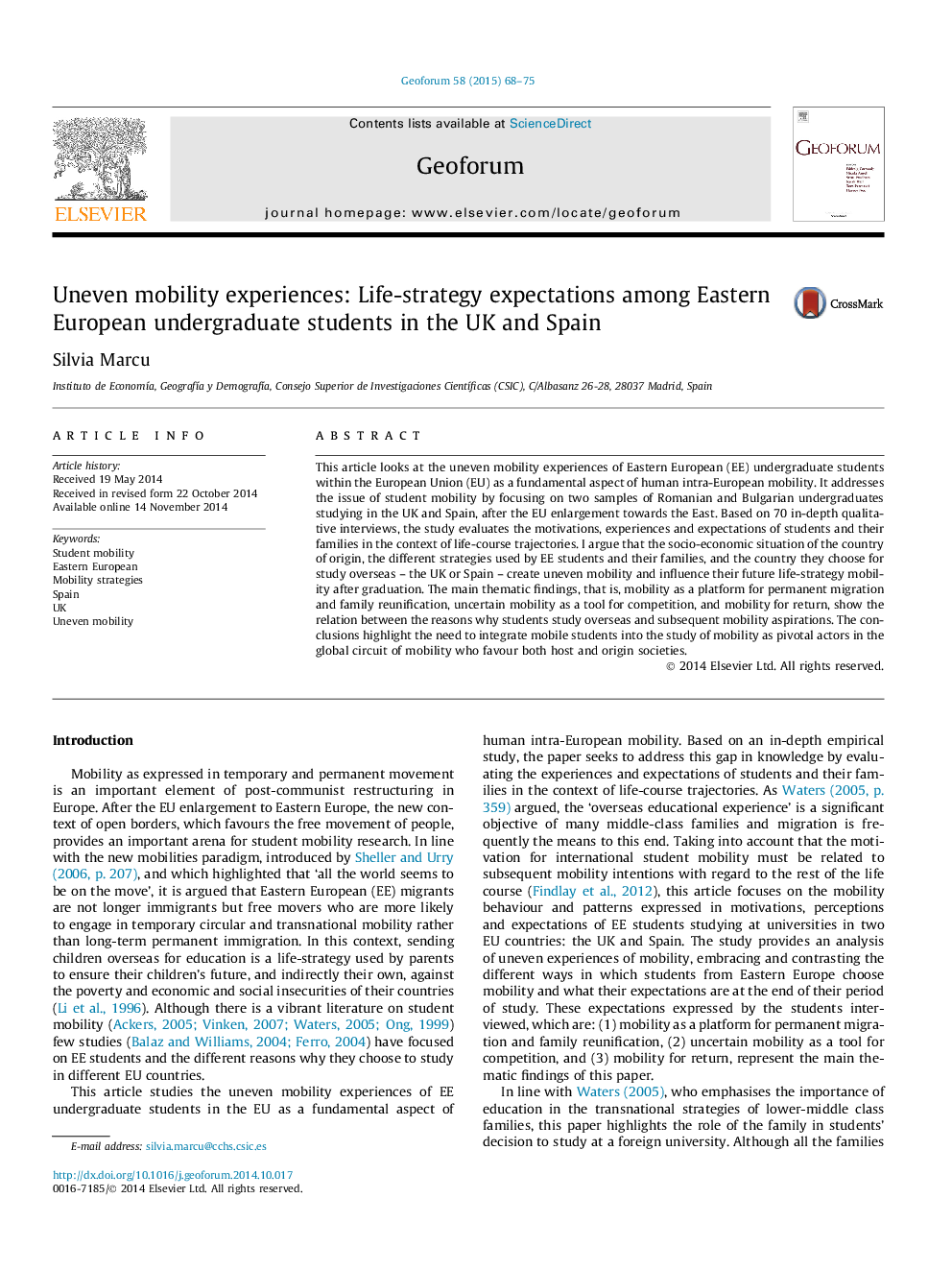| Article ID | Journal | Published Year | Pages | File Type |
|---|---|---|---|---|
| 5073851 | Geoforum | 2015 | 8 Pages |
â¢The different family strategies of EE students create uneven mobility experiences.â¢Mobility may be a prelude to permanent migration and family reunification.â¢Uncertain mobility may lead to a global career or further mobility after graduation.â¢Mobility may be a strategy used to promote development in the home country on return.
This article looks at the uneven mobility experiences of Eastern European (EE) undergraduate students within the European Union (EU) as a fundamental aspect of human intra-European mobility. It addresses the issue of student mobility by focusing on two samples of Romanian and Bulgarian undergraduates studying in the UK and Spain, after the EU enlargement towards the East. Based on 70 in-depth qualitative interviews, the study evaluates the motivations, experiences and expectations of students and their families in the context of life-course trajectories. I argue that the socio-economic situation of the country of origin, the different strategies used by EE students and their families, and the country they choose for study overseas - the UK or Spain - create uneven mobility and influence their future life-strategy mobility after graduation. The main thematic findings, that is, mobility as a platform for permanent migration and family reunification, uncertain mobility as a tool for competition, and mobility for return, show the relation between the reasons why students study overseas and subsequent mobility aspirations. The conclusions highlight the need to integrate mobile students into the study of mobility as pivotal actors in the global circuit of mobility who favour both host and origin societies.
